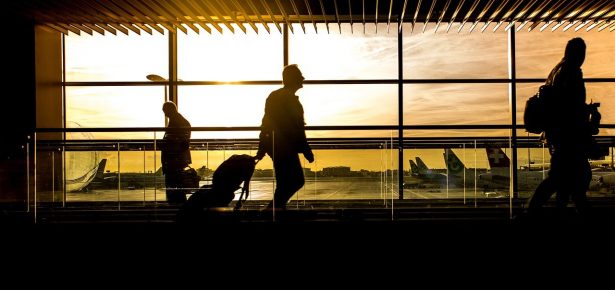
In response to the global COVID-19 pandemic, the Australian government has closed its borders, but welcomes home Australian citizens. However, it’s not as simple as boarding a plane and flying home. Due to restrictions placed on international passenger arrivals into the country, tens of thousands of Australians are still stuck overseas.
Australians stranded in other countries have encountered numerous difficulties returning home. Flight caps have been placed on international arrivals into all Australian ports, allowing only 4,000 passengers into the country per week. The flight caps have affected airlines, which are operating at a quarter to a third of capacity. The restrictions on entry mean that flights home are scarce, but this hasn’t stopped airlines from selling tickets that don’t exist. Airlines are accepting passenger reservations, but then bumping economy seats. These “offload cancelations” mean that only business and first class seats are retained, forcing customers to pay a premium for a one-way flight home. Many affected citizens are in financial distress, racking up serious debts due to multiple canceled flights, while airline refund processing times are taking up to one year. Some airlines are scheduling flights to Australia and selling tickets, but then canceling the flights altogether, although refusing to issue refunds.
These capacity limits have created a bottleneck of citizens who are desperate to get home. At present, over 34,000 stranded Australian citizens have registered with the Department of Foreign Affairs and Trade, although it’s estimated that up to 100,000 or more are stranded around the world.
In earlier months, there were assurances from the government that any Australians who wanted to be home for Christmas would receive assistance to do so, but as the year draws nearer to a close a positive outcome is highly unlikely.
For those citizens who do manage to get home, there is a 14-day mandatory quarantine imposed on returning travelers. The quarantine is self-funded, at great additional expense to individuals and families. The quarantine system has proven to be a bureaucratic nightmare and is being mishandled at the ground level. People who have quarantined have complained of confinement to small rooms with no outside contact, being fed food of poor nutritional value, and a lack of healthcare (except for COVID-19 checks). The quarantine system is without regard for those traveling with young children, and people with disabilities or mental health issues.
Many Australians stuck overseas have been living in limbo for months, while some are vulnerable or endangered. Australian consulates are overwhelmed, while the government has issued dismissive advice that affected people should borrow money from friends and family, or seek out local homeless shelters. Australians stranded overseas feel abandoned by their government, and are suffering financially, physically, and emotionally in their attempts to get home.
Every Australian trying to return home has a poignant story and there are numerous personal accounts shared on social media. Some expatriates have had a work visa that has since expired, they have lost their jobs, or their visas have been canceled. In several cases Australians have been declared illegal immigrants and threatened with imprisonment. Others are permanent residents who must arrive in country prior to an impending visa expiration date. Some are homeless or stranded without medical coverage. A large number of overseas citizens have medical issues and must return home for access to medication and treatment. Others have suffered the death of a loved one and want to be reunited with their families.
Meanwhile, in a country that supposedly values classlessness and egalitarianism, some Australians and non-citizens seem to be above the law. There have been instances of celebrities and sportspeople enjoying preferential treatment, such as those who have obtained expedited flights home or allowed to quarantine at home.
The morale of Australians stranded overseas is further challenged by the opinions of some Australians who are in country. The psychological stress of the pandemic has polarized Australians, creating an “us and them” mentality. There is a flippant “bugger them” mindset in which some onshore Australians lack empathy and compassion for the plight of their fellow offshore Australians. The Australian public is misinformed about the situation. In these unprecedented times, Australian citizens overseas are affected by circumstances beyond their control, although there is a false narrative in country that they are “irresponsible” and “should’ve gotten home earlier.” However, early government communications advised Australians overseas to “stay put” and “shelter in place”. Negative attitudes toward citizens overseas run contrary to the prized Australian ethos of mateship. In truth, Australians stranded overseas embody the celebrated “Aussie spirit” of stoicism, resilience, and the optimistic idiom that Australians live by, “She’ll be right, mate.” Those who still call Australia home are simply asking for the feted “fair go”.
Latest Comments
Have your say!